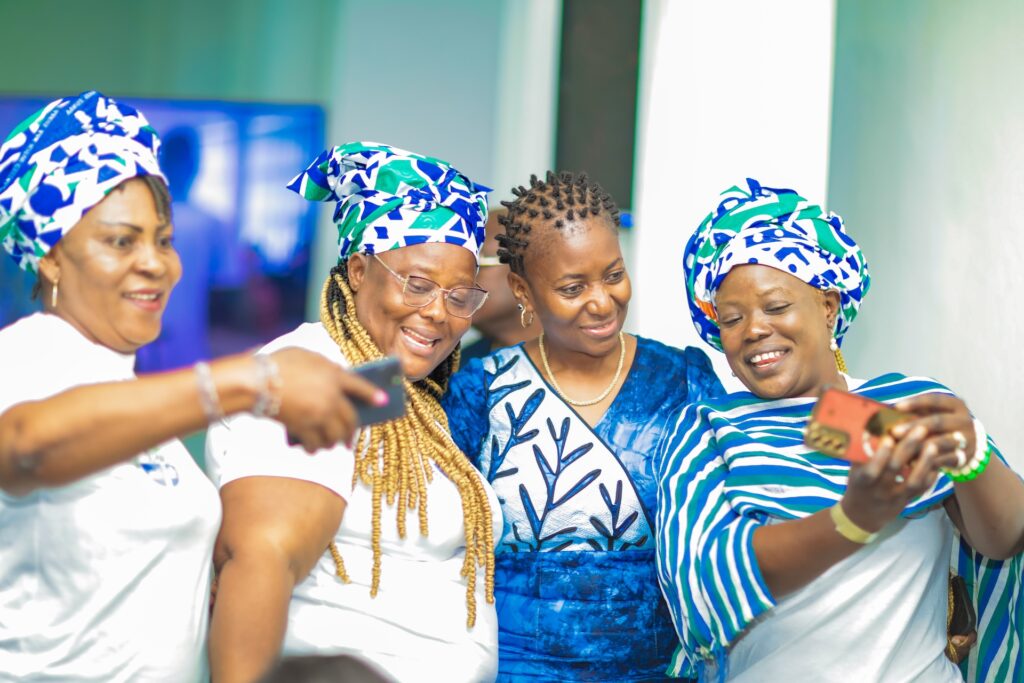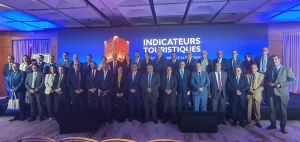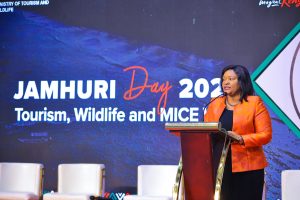Tourism in Africa is thriving, propelled by its rich cultures, unique landscapes, and the warm hospitality of its people. Yet behind every thriving tourism destination, there are women—many of whom are often unrecognised yet instrumental in shaping the sector.
The recent Women in Tourism Regional Conference in Freetown, Sierra Leone, emphasised this role, spotlighting both the achievements of women in African tourism and the significant gaps in support and opportunity they still face.
The host minister, Hon. Nabeela Tunis, Sierra Leone’s Minister of Tourism and Cultural Affairs, called for women to be at the centre of sustainable tourism, reaffirming the ministry’s dedication to creating equitable opportunities for women in tourism. She also emphasised tourism’s role in socio-economic growth, job creation, and poverty alleviation, especially for rural communities.
I believe that to fully harness the sector’s potential, strategic steps must be taken to address barriers and support women’s growth within the industry. I have highlighted and addressed some of the necessary steps to be taken below for effective women’s inclusion in tourism.
Strengthening Women’s Leadership in Tourism
African tourism is traditionally male-dominated, but this is gradually changing as more women rise into leadership roles. Women leaders often bring a community-focused, inclusive approach that drives both economic and social impact, particularly in rural areas where tourism can significantly uplift families and communities. However, many aspiring women leaders still lack the mentorship and training that would enable them to take on executive roles.
• Expand Mentorship Networks: Programs connecting young women with established leaders can help foster skills, build confidence, and establish networks that make entering the sector more accessible. A structured mentorship program—backed by tourism boards and educational institutions—can pave the way for women to excel in management roles and bring fresh, inclusive ideas to the industry.
• Invest in Leadership Development: Workshops and seminars focusing on business management, digital marketing, and strategic planning can build essential skills for women leaders. Such initiatives can equip them to make decisions that transform their communities and uplift the tourism industry.
Enabling Financial Inclusion
Access to funding is one of the most significant barriers facing women in tourism. While the industry offers robust opportunities for entrepreneurship, many women struggle to secure financing for their ventures. Addressing these issues requires innovative approaches that go beyond traditional lending.
• Promote Microloans and Grants: Financial programs tailored for women entrepreneurs, such as microloans and startup grants, can provide the necessary capital for women to launch or grow their tourism businesses. As highlighted in Freetown, sessions on financial empowerment are essential, providing women with insights into navigating credit and investment landscapes effectively.
• Expand Financial Literacy: Beyond financing, financial literacy workshops can equip women with the skills to manage budgets, make investments, and sustain profitability. These programs should be localised and accessible, making financial empowerment a reality for women across various regions.
Leveraging Digital Technology
The digital revolution has transformed global tourism, opening up opportunities for even the smallest enterprises to reach a worldwide audience. However, women entrepreneurs across Africa often lack access to digital tools and training that would enable them to leverage this growth.
• Digital Marketing Support: Government and private partnerships can sponsor digital marketing workshops specifically for women-led tourism ventures. Training on social media, booking platforms, and e-commerce tools can help women entrepreneurs reach international markets, expanding their business reach and enhancing their economic resilience.
• Tech Partnerships for Training and Resources: Partnerships with tech companies can help bridge this gap by offering digital resources and training programs tailored to tourism. Providing women with these tools will allow them to innovate, streamline operations, and improve outreach, helping them stay competitive in a fast-evolving market.
Fostering Regional Collaboration and Networks
Africa’s tourism potential grows when countries collaborate. Women-led tourism businesses stand to benefit immensely from cross-border tourism networks that connect women entrepreneurs, facilitate business opportunities, and promote regional tourism as a unified brand.
• Develop Regional Networks: Creating cross-border associations for women in tourism allows for knowledge sharing, joint ventures, and stronger regional ties. These networks can host annual events, training programs, and trade shows to strengthen partnerships between women in tourism and increase their visibility on the global stage
• Simplify Cross-Border Tourism Policies: Governments can support regional tourism growth by simplifying visa policies and promoting multi-country travel packages. This can also boost small women-led businesses, as many travellers prefer curated, authentic experiences that female entrepreneurs often provide.
Recognising and celebrating women’s contributions
Women are not only essential to tourism’s economic success; they are also instrumental in preserving African cultures, sharing local stories, and fostering community development. Recognising and supporting women’s contributions can enhance Africa’s global image and attract travellers interested in authentic, immersive experiences.
Women-led ventures often place a high value on sustainability and community impact, values that resonate deeply with today’s socially conscious travelers. By championing initiatives that focus on empowering women through tourism, African countries have the chance to redefine the tourism narrative, making it not only a vehicle for economic growth but a powerful platform for social transformation.
A Path Forward
The Women in Tourism Regional Conference in Freetown underscored the potential and resilience of African women in tourism, celebrating their contributions while calling for continued support. Empowering women isn’t just about equity—it’s an economic necessity that will strengthen Africa’s position on the global tourism map. By investing in women through mentorship, financial inclusion, digital access, regional networks, and industry recognition, Africa can build a tourism sector where women lead and where communities thrive.
Through these focused, actionable steps, African tourism can chart a brighter, more inclusive future where women play a central role in telling Africa’s story to the world.
Article by Francis Doku
This article was first published by Ghana’s Daily Graphic







